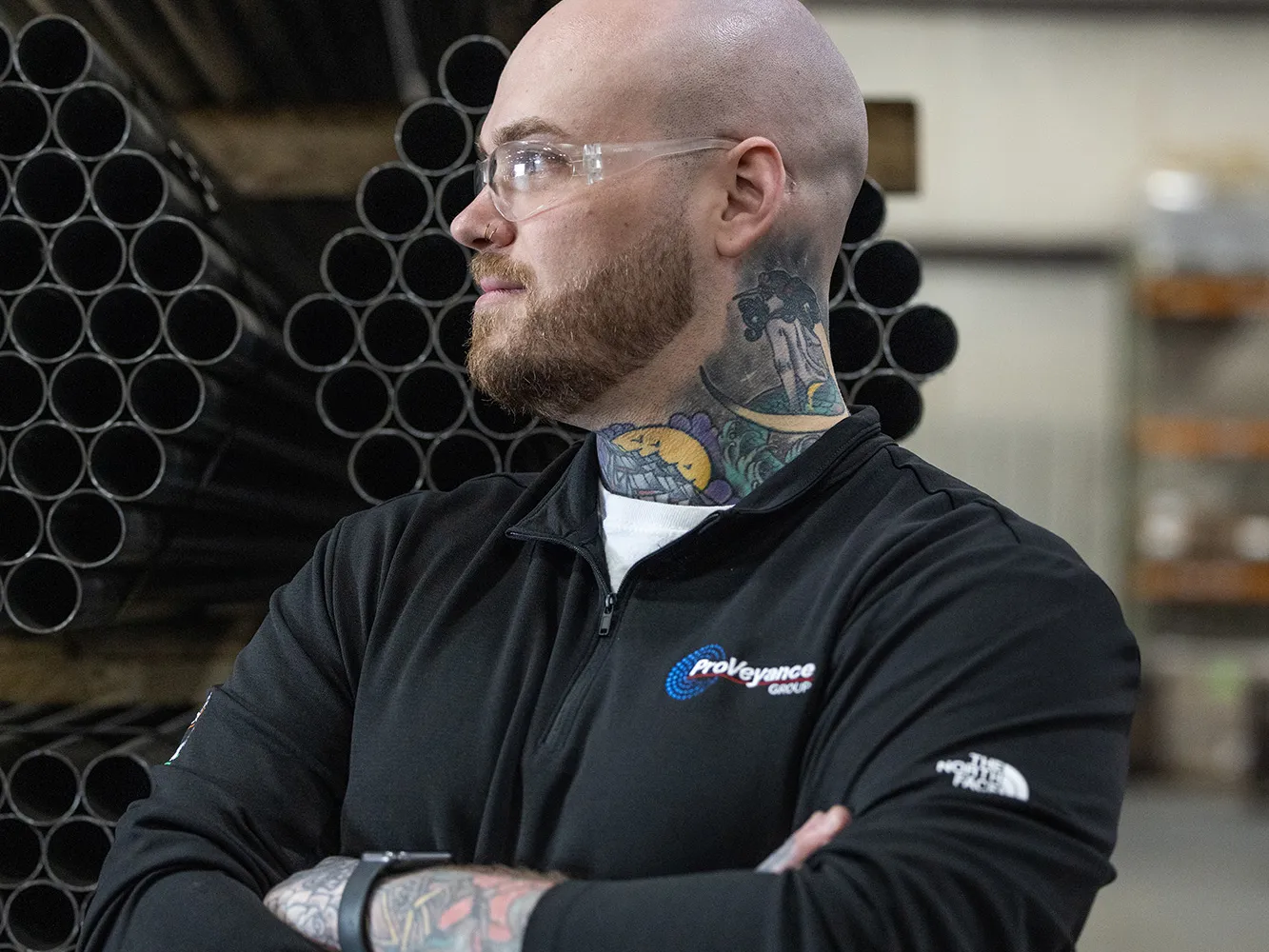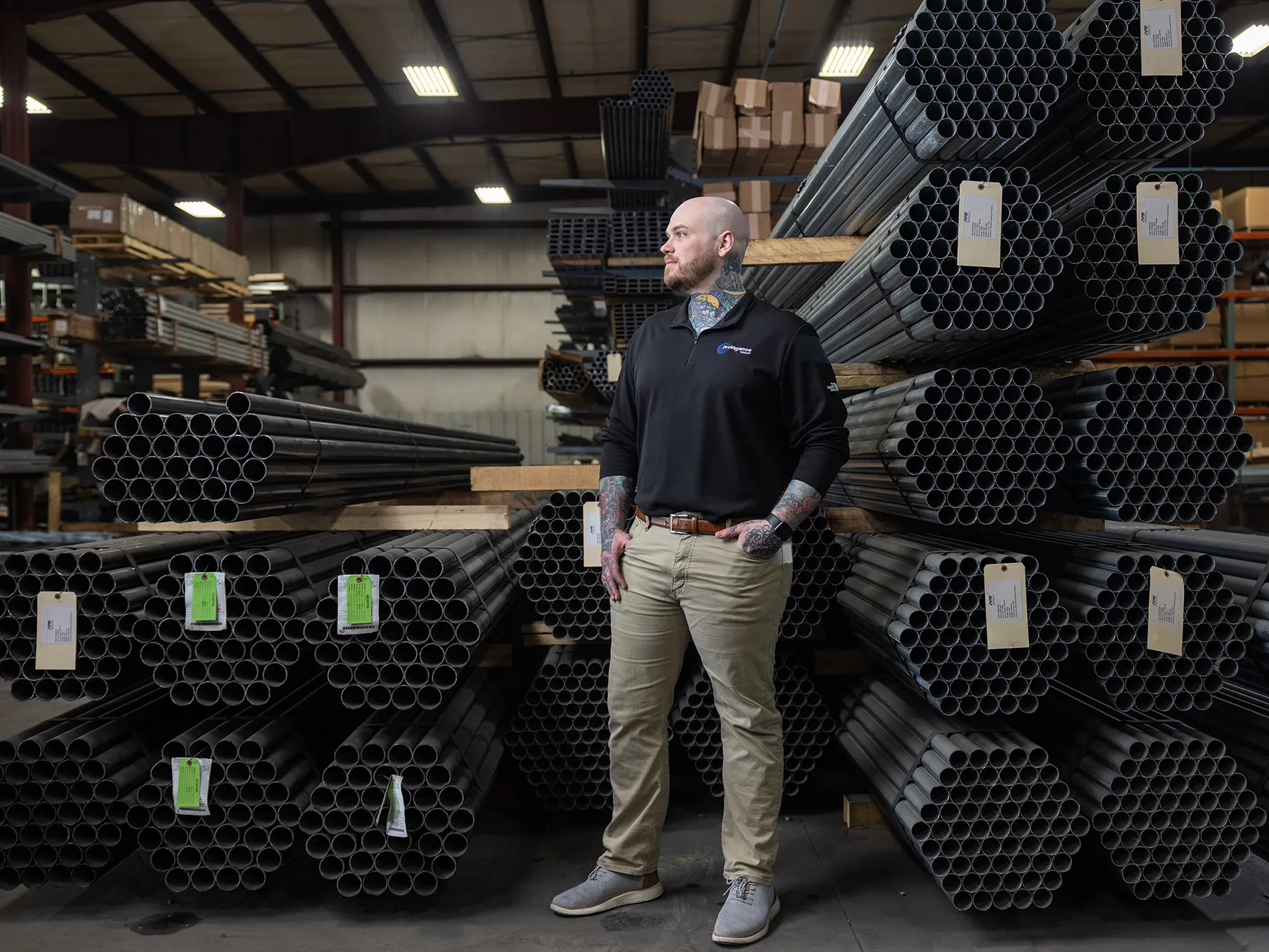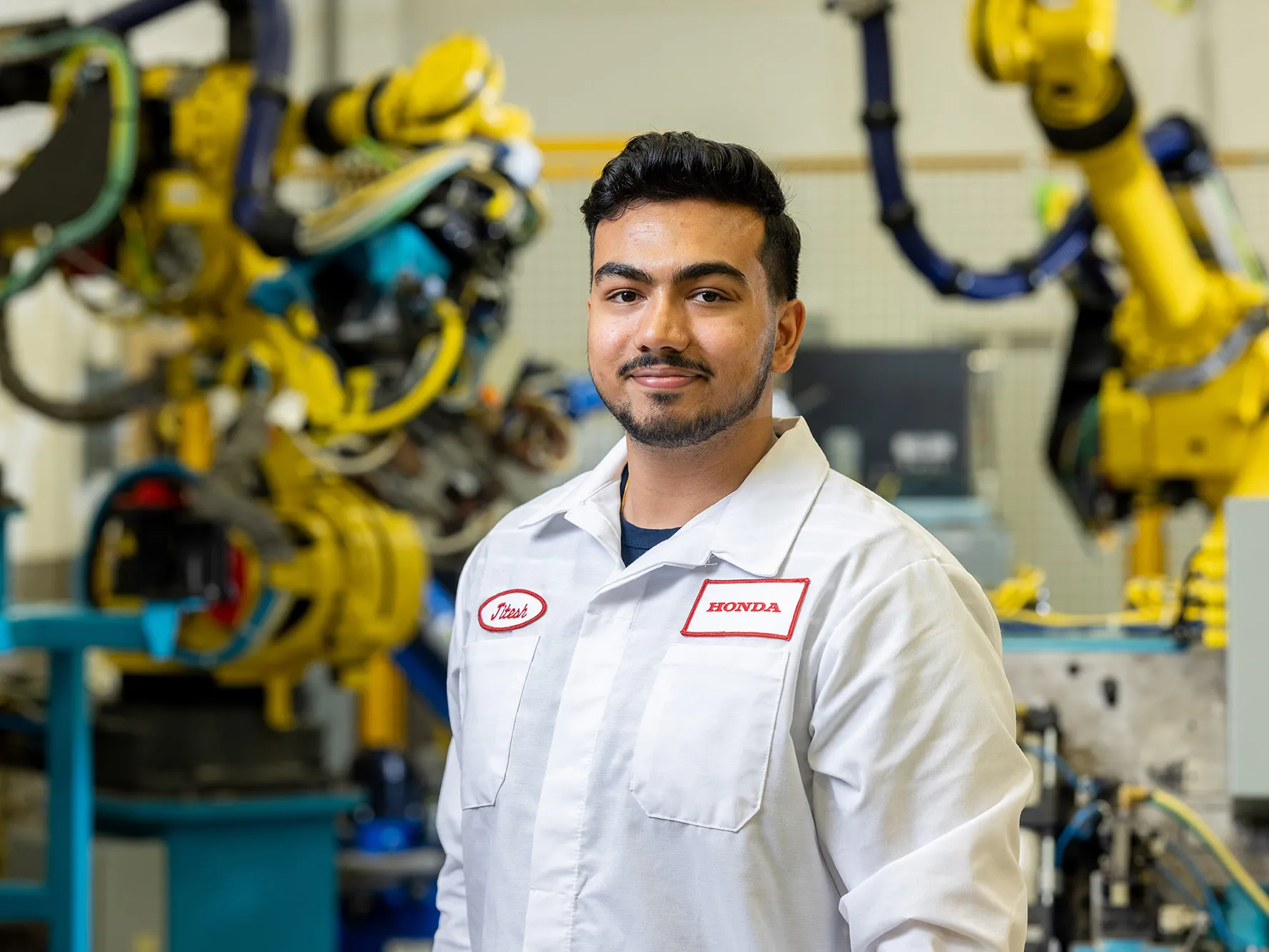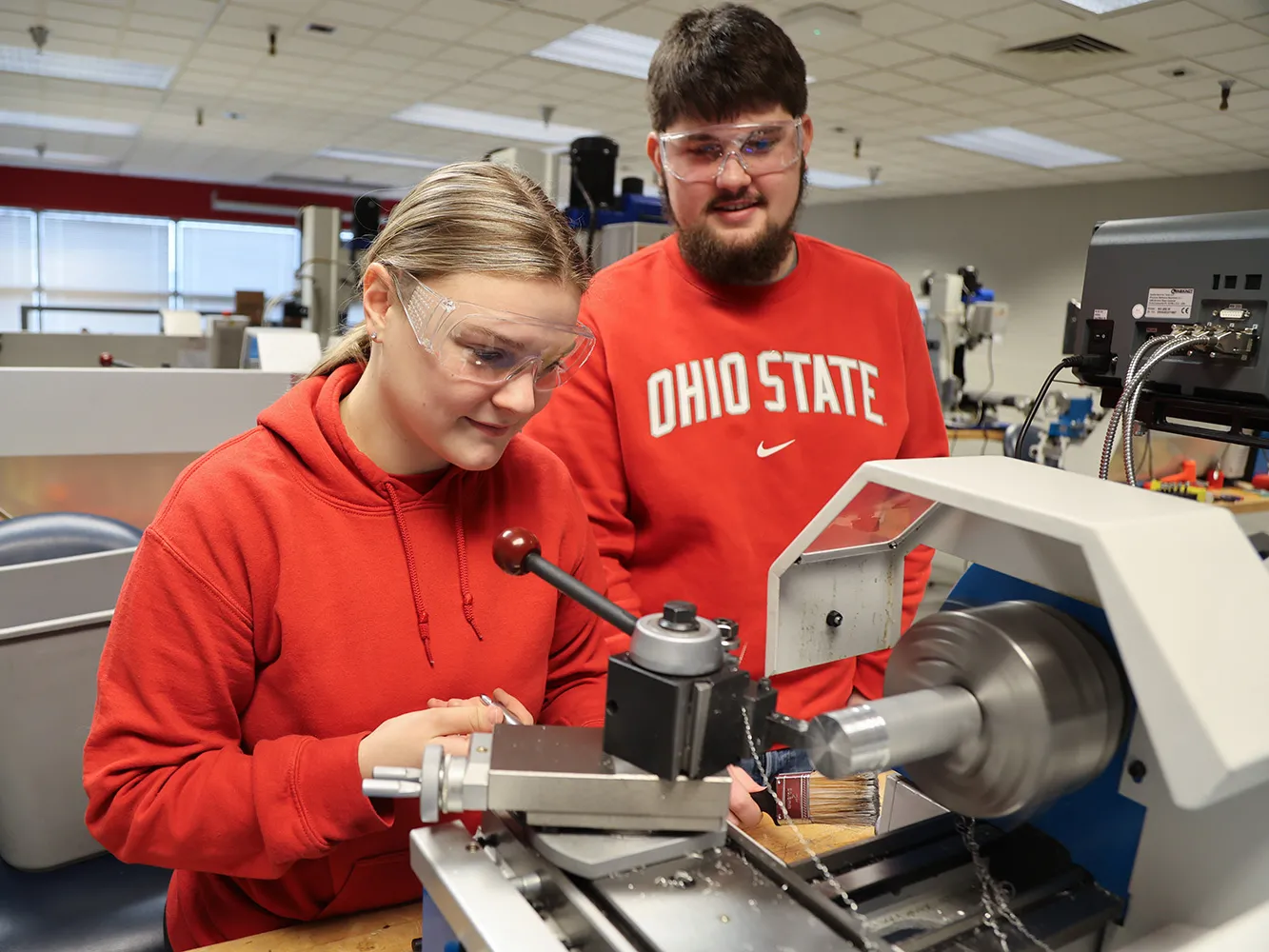Kathryn Kelley is executive director of the Ohio Manufacturing Institute at Ohio State. When she and colleagues set out to create the engineering tech program, they began by touring the state to ask industry professionals a simple question: What do you need in an engineer?
It began the process of building a comprehensive curriculum on regional campuses to produce engineering technicians who will elevate Ohio’s manufacturing into an era of automation, efficiency and global competition. At the heart of the program? Well-rounded engineers and problem-solvers.
“During a focus group, we had someone say, ‘I just want someone who knows how to make a decision,’” Kelley says. “I’m hoping we have COOs and executives soon. That’s who we’re trying to develop—manufacturing leaders.”
Manufacturing is Ohio’s top industry, producing everything from cars to food to rubber products. To remain a top-tier manufacturing state requires graduates ready to make an impact from day one. Here are highlights of the curriculum that produces well-rounded engineers and problem-solvers prepared to elevate the industry.

Manufacturing processes
Through coursework and facility tours, students study the systems integration of machining operations and mechanical processes factories depend on.
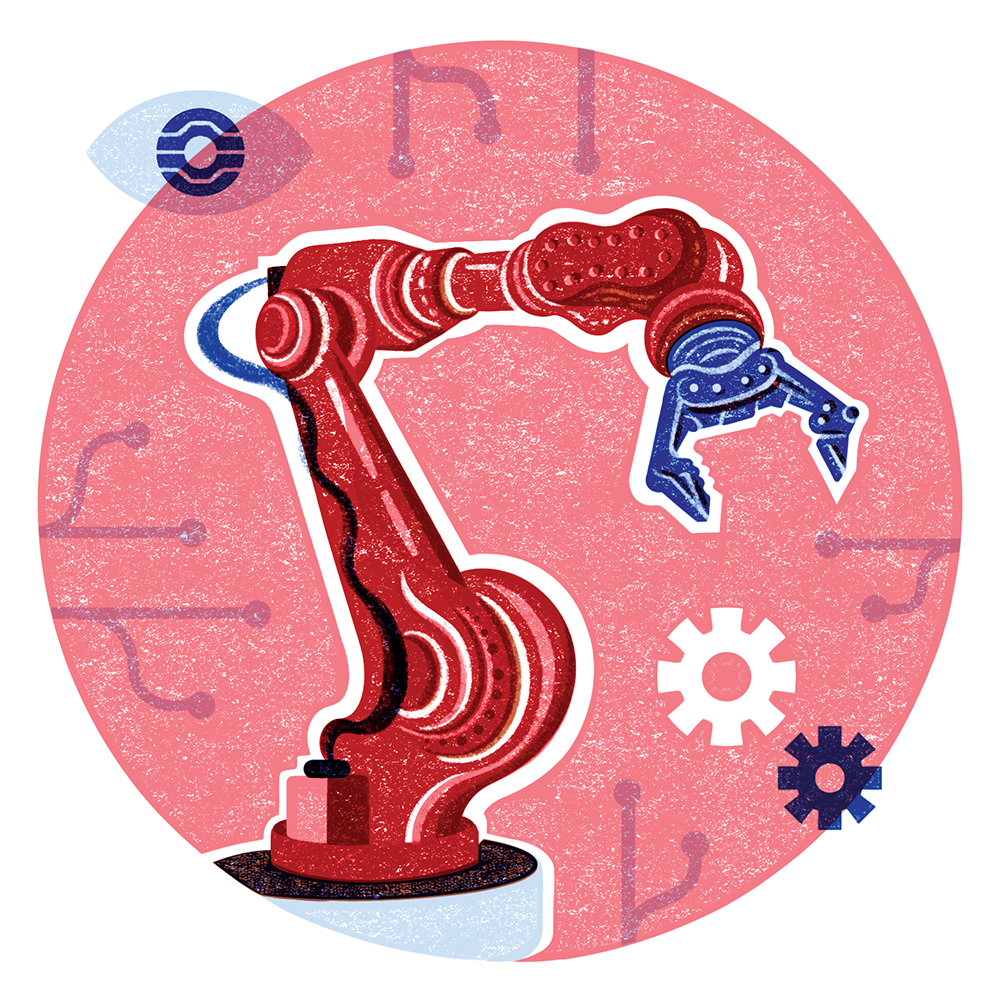
Industrial automation
Automation relies on robotics, programmable logic controllers and smart production lines to efficiently perform repetitive work. Students perform hands-on projects to learn program-ming and oversight of these cutting-edge tools.

Business
To create well-rounded grads, the curriculum incorporates business and management principles, such as operations management, financial analysis and project management.

Leadership
Learning leadership and change management, graduates obtain a deep understanding of the value of connecting with team members across disciplines and backgrounds, while gaining critical decision-making skills.

Continuous improvement
Referring to the Lean Six Sigma process, students become adept at methodical approaches to streamlining organizations into lean, efficient production sites.

Industry partnerships
An Industry Advisory Council helps program leaders continue to evolve the curriculum. Council members also provide students with mentorship, facility visits, internships and senior capstone projects.
